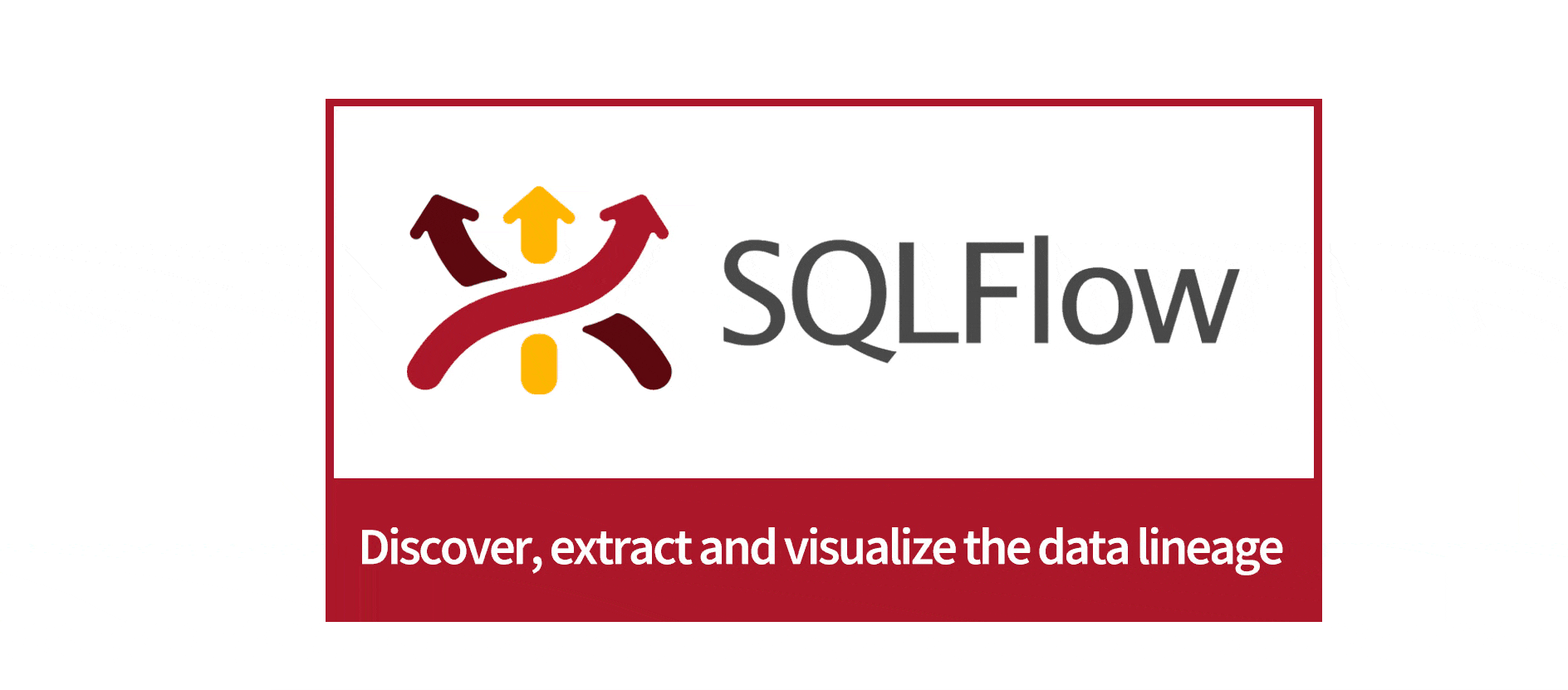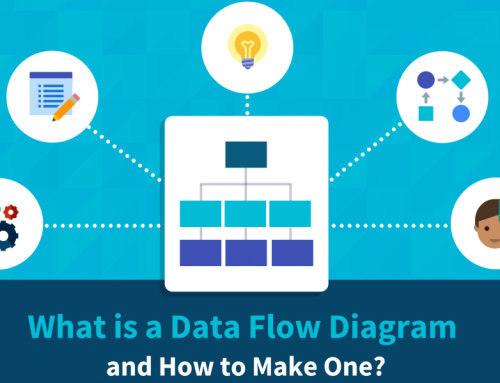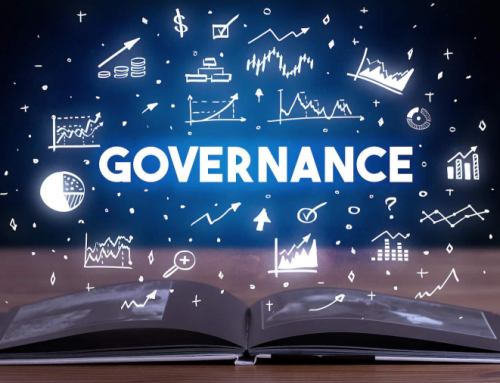Top 10 Metadata Management Tools
Metadata management solutions play a key role in managing data for organizations of all sizes. Especially in the era of cloud computing, the need for a framework to aggregate and manage various sources of big data and data analysis, and extract maximum value from them, is indisputable. Metadata management is designed to solve this task. It provides powerful tools to make information assets work more efficiently, including strengthening governance and compliance while reducing risk.
Metadata management solutions monitor data throughout its lifecycle. This typically includes four main areas: data analytics, data value, data governance, and risk and compliance. It may include Enterprise Metadata Management (EMM), which includes the necessary processes, responsibilities and technologies, especially your data center, so that metadata adds value across the company.
Metadata management solutions typically include many tools and capabilities. These include metadata repositories, business glossaries, data lineage and tracking capabilities, impact analysis capabilities, rules management, semantic frameworks, and metadata extraction and transformation.
Organizations looking to take their metadata management framework to the next level should pay close attention to suppliers and make informed decisions. Not surprisingly, while all features offer great functionality, some are better suited to specific businesses than others.
3 Tips for Choosing the Right Metadata Management Solutions
- Conduct a comprehensive analysis of your organization’s requirements. Not surprisingly, different organizations in different industries need different tools, solutions, and vendors. Your organization may need to manage data more efficiently so it can be used for analytics or machine learning, or it may require the establishment of a stronger industry standards or regulatory compliance framework. A starting point is to identify around the initiative’s goals, what data should be better managed, why and where current gaps exist, and what is needed to build bridges to a more effective metadata management strategy.
- Carefully examine the different solutions to understand their advantages and disadvantages. As with any enterprise application, metadata management solutions are not created equal. Some vendors focus their offerings more on regulatory issues in financial services or healthcare, while others focus on gaining retail or manufacturing insights. Some vendors excel at data cataloging or impact analysis, while others have better semantic search capabilities, business glossary and rules management, or integrated machine learning and automation. Also, consider the set of partners the vendor has and the solution provider’s vision and roadmap for the future.
- Consider licensing costs, consulting fees, training, security and ancillary factors. It is critical to understand the full cost of any software application and enterprise plan before starting. Metadata management is especially tricky because it touches many corners of the organization. It can involve a range of direct and indirect costs, including the need to adjust and better integrate IT and security. There is no doubt that vendors offer vastly different products, business models and service delivery approaches. This can lead to unexpected problems and costs, including training and security.
Here is our list of the top 10 metadata management tools for 2022:

Top 10 Metadata Management Tools
Top 10 Metadata Management Tools – 1. Alation
Vendor’s data catalog solution provides automated data inventory in a highly searchable catalog, as well as a powerful recommendation engine. This method is designed for data scientists and business users. It eschews technical jargon and promotes best practice approaches through collaborative endorsements and warnings. Alation was named a “Leader” in the 2018 Gartner Magic Quadrant (MQ) for Metadata Management Solutions.
Alation supports numerous key metadata management tasks, including data assessment, the use of proactive metadata and trust models, and a proprietary framework designed for data scientists, data analysts, business users, and others seeking information. The vendor’s partners include many industry giants, including Teradata, Tableau, MicroStrategy, Hortonworks, Cloudera, IBM, Microsoft, Vertica and Trifacta.
Alation supports a variety of use cases and offers a high degree of flexibility in extracting and managing metadata. The platform offers rich collaboration tools that allow groups and users to share information and insights derived from raw data. This includes data about top users, column-level popularity of the data, and shared data and filters. It also includes company-specific data dictionaries and wiki articles.
Top 10 Metadata Management Tools – 2. Alex Solutions
Alex Solutions creates marketplaces for enterprise data through detailed data analysis and machine learning through robust and highly flexible data catalogs, customizable business glossaries, smart tagging and policy-driven data quality. The platform also offers technology-agnostic metadata scanners and built-in workflows. Gartner named the company a “Leader” for 2018 Gartner MQ Metadata Management Solutions.
The platform supports use cases and specific regulatory requirements across a wide range of industries. It provides powerful tools for extensive and in-depth data management through a central enterprise marketplace.
Alex Solutions provides a set of tools and features designed to appeal to a diverse user base across a broad ecosystem. This may include data scientists, analytics experts, regulatory executives and teams, and security and privacy experts.
The platform supports advanced automation, including the ability to capture end-to-end data lineage, identify sensitive data, understand usage and access patterns, and more. This makes it a powerful tool for managing a mix of on-premises and cloud data. The product also includes industry-leading metadata management and data quality control tools.
Top 10 Metadata Management Tools – 3. ASG Technologies
ASG Enterprise Data Intelligence (EDI) provides a powerful and intuitive platform with extensive functionality and rich functionality. It includes tools for automatic discovery, cataloging, lineage, reference data management and governance. The vendor addresses the need to capture, manage and deliver data at web scale through a secure portal. Gartner designated the company as its 2018 Gartner MQ Metadata Management Solutions Leader.
ASG provides a high level of oversight and management, including the ability to monitor system performance across teams, automate job processing, and schedule and automate workloads across platforms. The vendor places great emphasis on automating data inventory for compliance and agility. This includes GDPR and the recently passed California Consumer Protection Act (CCPA). The app automatically scans and identifies data in order to find personally identifiable information (PII).
ASG EDI supports over 220 data sources and numerous programming languages. The ability to cross data silos makes this solution useful for a wide range of tasks, including providing insight into supply chains. Additionally, the platform supports metadata export to authorized downstream applications.
Top 10 Metadata Management Tools – 4. Collibra
The vendor provides robust data governance and cataloging capabilities designed to use and manage data across the enterprise. Collibra takes a collaborative approach to managing metadata. It focuses on group interactions by establishing user roles for data ownership and usage. The vendor designed the platform to work with emerging digital technologies such as the Internet of Things (IoT), artificial intelligence (AI) and machine learning. Collibra was named a “Leader” in the 2018 Gartner MQ Metadata Management Solutions.
Value proposition for potential buyers: The platform is very flexible and configurable. It can address various areas such as finance, customers, products, services, supply chain or people. All of this metadata can be linked to risk, regulation and governance through overlays and specific policies and rules.
Collibra uses a ticketing approach to establish itself as a system of data record. Gartner describes the approach as “innovative,” noting in Metadata Management Solutions MQ that vendors support understanding and trust in data at a deeper level. The provider has established Collibra University and Collibra Coaching Services to help clients understand how to get the most out of the app. It also offers extensive on-demand webinars and numerous other resources.
Top 10 Metadata Management Tools – 5. DATUM
DATUM excels at identifying and understanding relationships in large, complex enterprise datasets. Its solution Information Value Management includes powerful tools for discovering, connecting, analyzing and measuring the impact of data. It also includes the ability to link data to specific business goals and display progress toward those goals. Gartner named DATUM a 2018 “Leader” for MQ for Metadata Management Solutions.
Information value management is specifically designed to accommodate disparate enterprise data. It ties together several key metadata management tasks in a unified metadata management platform. These include performance management, process definition, classic data dictionary, policy management and business glossary.
The vendor provides role-based business use cases that allow different users in an organization to complete tasks without requiring extensive technical knowledge of data and metadata management. DATUM has designed the interface for a non-technical audience. It is known to be easy to use.
The supplier’s focus is on managing the business rules, processes and metrics that are most important to the business. The app allows users to link fields, rules, standards, processes and metrics through visual dashboards and detailed reports and view progress towards goals.
Top 10 Metadata Management Tools – 6. IBM
IBM’s InfoSphere Information Governance Catalog provides a range of tools and capabilities that address metadata management. This includes a collaborative authoring environment that helps users create a central catalog of enterprise-specific terminology, including relationships to data assets, and powerful filters for understanding lineage and numerous data relationships. The platform addresses business needs across numerous industries and data domains. IBM appears as a “Leader” in Gartner 2018 MQ Metadata Management Solutions.
The metadata management solution includes powerful tools for browsing and searching for terms and categories in the catalog. This includes the ability to view definitions, usage, and related terms. As a result, analysts can view the information governance rules and information assets associated with the term and flesh out details about those assets.
IBM has adopted a unified governance and integration platform that simplifies and automates innovations in data and analytics governance and management. Based on IBM’s metadata and governance reference architecture, the framework leverages its public cloud product, Watson Knowledge Catalog, to develop artificial intelligence and machine learning.
IBM has adopted an open metadata management framework. It is working with other vendors, including Hortonworks, to create a more open and integrated data environment for metadata.
Top 10 Metadata Management Tools – 7. Informatica
Informatica provides a comprehensive, unified view of metadata, business context, tagging, relationships, data quality and usage. The platform is designed for a wide range of users, including data analysts, data scientists, data stewards, and data engineers. It includes tools for business, technical and operational metadata management, connectors, semantic search and browsing, end-to-end data lineage, data relationship discovery and impact analysis. Gartner named Informatica a “Leader” in the 2018 MQ for Metadata Management Solutions.
The company has a huge market share and huge influence in metadata management. It provides a robust and highly flexible approach focused on information governance and analytics capabilities consistent with a company’s platform and application-agnostic approach. This makes the solution valuable across numerous industries and infrastructures.
The vendor’s end-to-end approach, including enterprise data catalogs, data preparation, data security, management, governance and analytics, is linked with a robust vocabulary and rules management framework to create a powerful unified enterprise metadata platform.
The company has an ambitious vision and roadmap to expand the platform and capabilities. This approach has driven a growing number of markets and industries to adopt vendor metadata solutions.
Top 10 Metadata Management Tools – 8. Oracle
Oracle offers three metadata management solutions: Oracle Enterprise Metadata Management (OEMM), Oracle Data Relationship Management (DRM), and Oracle Enterprise Data Management Cloud. The vendor’s solution addresses the data requirements of Oracle and non-Oracle environments.
They include data quality tools, master data management solutions, enterprise applications, platforms, and more. Gartner named it a “Leader” for MQ for Metadata Management Solutions in 2018.
The company’s approach to metadata management has appealed to many organizations. Applications can collect, process, and catalog metadata across a variety of platforms and frameworks, including Hadoop, ETL engines, BI, data warehouses, and CASE.
Oracle Enterprise Metadata Management extends the basic metadata repository concept. It provides interactive search and metadata browsing, as well as data lineage, impact analysis, semantic definition, and semantic usage analysis for any metadata asset in the catalog.
The vendor focuses on integrating core functionality into its metadata management solution. This includes integration with business continuity, data movement, data transformation, data governance, catalog, analytics and streaming data solutions. Oracle also takes innovative approaches to cataloging cloud data.
Top 10 Metadata Management Tools – 9. SAP
SAP offers four solutions for metadata management: SAP PowerDesigner, SAP Enterprise Architect, SAP Information Manager for metadata management, and SAP Data Center. The company’s focus is on delivering robust functionality for a variety of on-premises and cloud-based systems. While various products can be used with external applications and data repositories, SAP’s main focus is on its own enterprise applications and specific roles. Gartner listed SAP as a “visionary” in its 2018 Metadata Management Solutions MQ.
SAP has expanded its metadata management offerings over the past few years. In 2017, it introduced the SAP Data Center, which meets the needs of organizations to manage active and passive metadata through agile and flexible orchestration. It is designed to discover, optimize, enrich and manage any type, variety and amount of data in a distributed data environment.
SAP Information Steward for metadata management is designed to handle various tasks related to data cleansing and validation, classification, insights, metadata management and governance. The solution supports numerous sources and file types and is designed to continuously gain insight into the quality of enterprise information. It can be used both locally and in the cloud.
The vendor has recently focused on improving its cloud-based cloud metadata management architecture with SAP PowerDesigner and Information Steward. This expands the use cases and roles supported by the solution.
Top 10 Metadata Management Tools – 10. Smartlogic
Smartlogic’s semantic AI platform aims to “transform data into knowledge” by putting metadata to work efficiently. It can extract and analyze a variety of data to reveal targeted contextual data for tasks such as improving customer experience, contract lifecycle management, records management, data and text analytics, process automation, regulatory compliance and information security. This makes it attractive in numerous industries, including healthcare, life sciences, media, financial services and manufacturing. Gartner named Smartlogic a “Leader” for MQ Metadata Management Solutions in 2018.
The company provides powerful semantic capabilities related to metadata management through its product Semaphore. This includes classifying and managing various datasets. The solution combines AI, natural language processing and machine learning to find and manage data relationships more efficiently.
Semaphore uses advanced automation and automated classification for robust information governance and metadata management. It also includes powerful data auditing tools and document fingerprinting to identify and protect important and sensitive data assets.
The vendor’s approach revolves around a metadata hub, allowing it to break down the many traditional data silos created by siloed applications and data repositories. The solution’s semantic capabilities help provide a faster and more accurate data management framework.
Conclusion
Thank you for reading our list of the top 10 metadata management tools for 2022 and if you’ve enjoyed it, we would be very happy. However, since there are couples of metadata management tools, if our list doesn’t include your favorites, please forgive us. Feel free to leave a comment below to let us know which metadata management tools you like best and we’ll update this list very soon! (Published by Ryan on Jun 28, 2022)
One Comment
Leave A Comment
If you enjoy reading this, then, please explore our other articles below:




[…] Data analysis tools must support connecting multiple data sources for integrated analysis. Due to the rapid development of network technology, more and more unstructured data (such as text, images, sounds and web pages) are generated. In addition to supporting relational databases (such as Oracle, SQLServer, Access, MySQL, etc.), it is also necessary to consider whether non-relational databases such as MongoDB, Redis, and HBase are supported. Different products provide different degrees of support for the above data management. […]